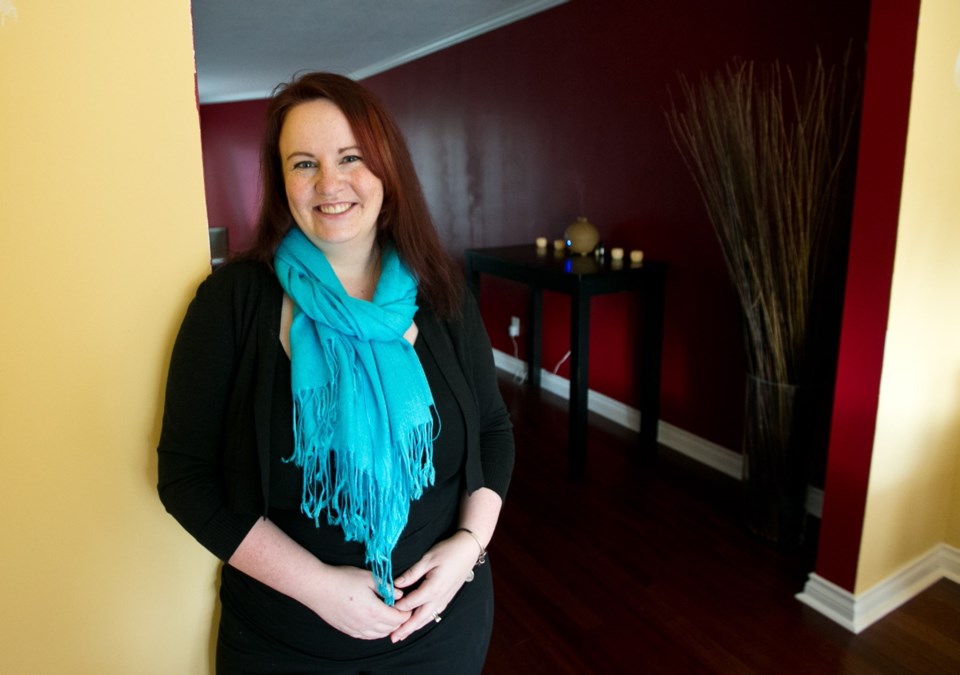Today, Jillianne Code has a new heart after a decade of dire cardiac problems that saw the healthy young woman collapse from congestive heart failure at age 28.
“On the day I arrived in B.C. from Edmonton, I collapsed,” said Code, now 39. “I had no previous health issues.”
That was July 18, 2005. Within two days, Code was diagnosed with congestive heart failure.
Congestive heart failure occurs when the heart is unable to pump blood at a normal rate, depriving the body’s organs of needed oxygen, blood and nutrients. Heart failure doesn’t mean the heart stops, rather that the heart is not working as efficiently.
“They gave me 72 hours — to live,” she said. “It was a crazy time.”
Code credits her health today to her heart donor and the integrated team and co-ordinated approach of health professionals and specialists at the heart function and cardiac rehabilitation clinics at Royal Jubilee Hospital and St. Paul’s Hospital in Vancouver.
“In terms of heart failure, I’ve seen it all,” Code said. “I’ve had every treatment available, from the best medications to having an implantable cardioverter defibrillator, to a left ventricular assist device, and then finally my transplant — and so without these clinics and without these people I wouldn’t be alive. It’s that simple.”
Doctors told Code the cause of her heart failure was likely a virus. She had flu-like symptoms before leaving for B.C. She had a chest X-ray, was diagnosed with pneumonia, and given antibiotics. She attributed her fatigue to the move and her cold. When she collapsed, “I had less than 11 per cent heart function left.”
Code healed and was soon taking courses at Simon Fraser University toward a PhD in educational psychology — the reason she moved to B.C. In the five years it took to complete her studies, her heart would deteriorate. In April 2010, she had a stroke.
She rebounded and started a post-doctoral fellowship at Harvard University in Boston. By November, however, an implantable cardioverter defibrillator, called an ICD, was implanted in Code’s chest to regulate her heart rhythms.
“In the summer of 2013 was when I really started to slide,” said Code, by then working at the University of Victoria.
Code then hit a critical point: She had received the maximum benefit from all recommended medical therapies and devices. She was put on a list for a heart transplant.
Fewer than 200 heart transplants are performed each year in Canada.
“It wasn’t until they said they’d list me for a transplant that the idea that my life could end ever entered my thinking,” Code said. “It was a pretty profound time for me and my husband. To the best of our abilities, we lived our lives.”
In March 2014, Code received a left ventricular assist device — a mechanical pump that helps a weak heart pump blood.
About a year and a half later, Code received a new heart. She says today she is healthier than ever before. “I’m really good.”
Code leaned heavily on the integrated and specialized services — from medical to psychological counselling — through the heart function clinic and cardiac rehabilitation services. “They treated me as a whole person,” she said.
In October, Code ran the eight-kilometre race in the Victoria Marathon. Training was odd. “I hadn’t felt such a strong heart beat for years,” she said. “It was scary. My brain had to come to understand that not all feelings from my heart were bad. That took a lot of cardiac rehabilitation and a lot of cognitive training.”
Code completed every step of the road race. It was slow-going sometimes, but she did sprint across the finish line. “I can hardly believe this is my life sometimes. I think to myself: ‘Did the last 10 years really happen?’ ”



